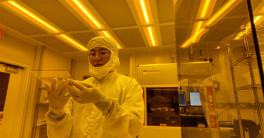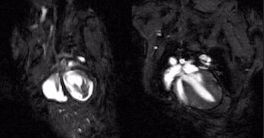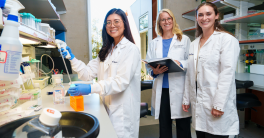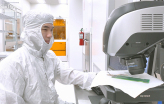First-of-its-kind Cleanroom Turns Inventions into Devices Ready for FDA Approval
The first good manufacturing practices facility located on a university campus in the United States opened this fall at the University of California San Diego. The space is dedicated to building devices that can be implanted in the human body – especially for neurological applications.
















